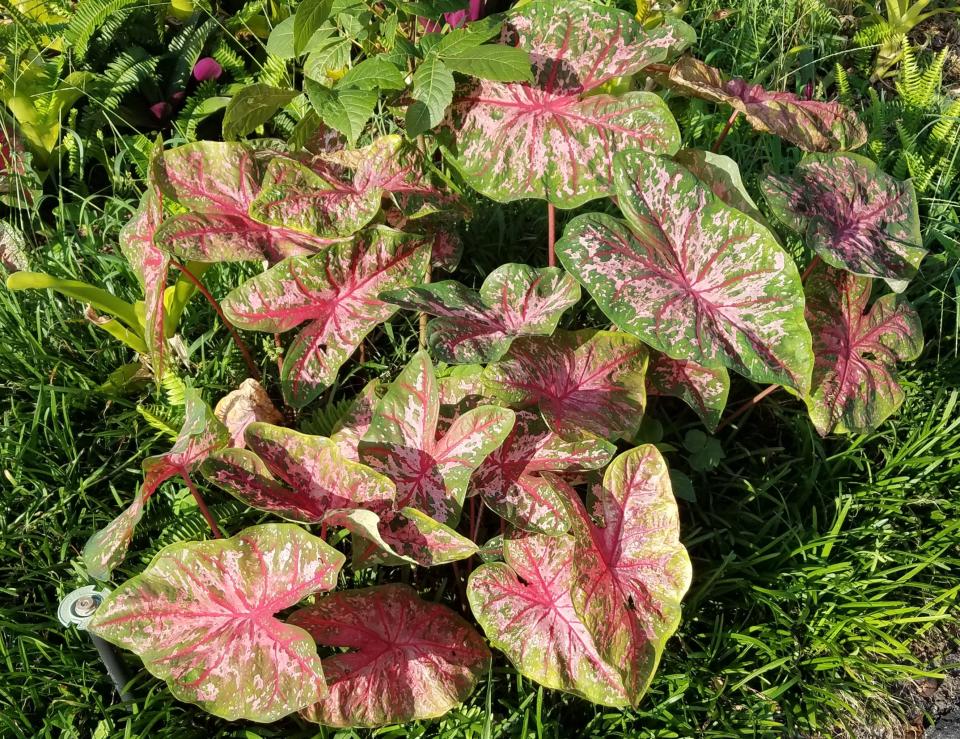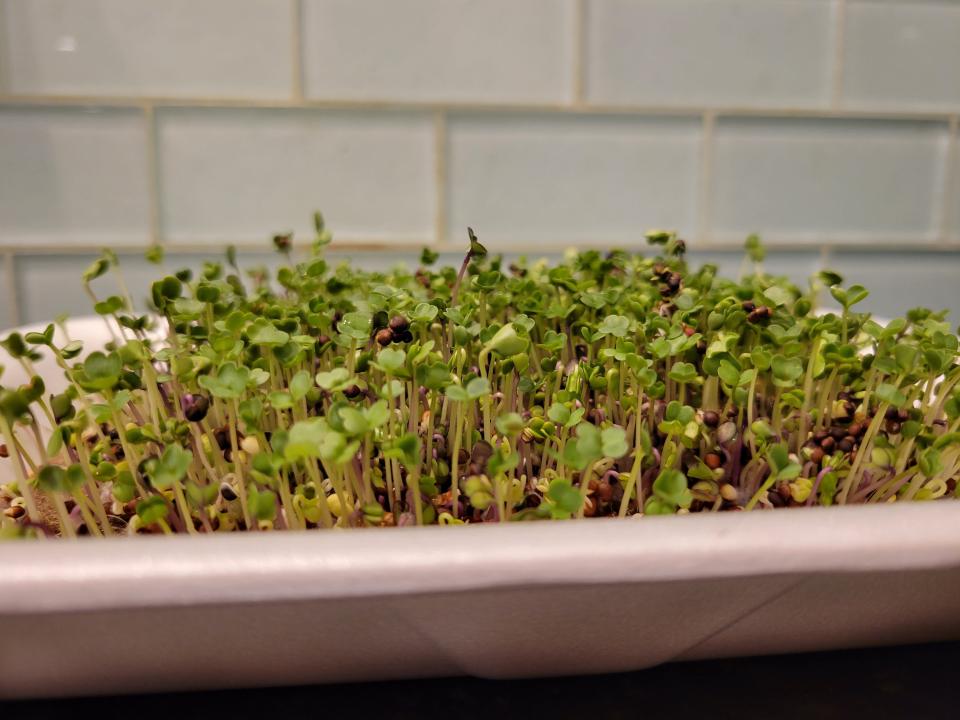May's full of opportunities for gardeners ready to go and grow | Sally Scalera
Though we have just begun to receive warm weather, this month is still ideal for gardening. After all, when the weather is nice, who wants to stay inside?
Here are some ideas for things to do in the yard this month.
* If you have difficulty growing vegetables, herbs, and/or fruit or are interested in learning how, consider attending the Be Healthy: Grow Your Own Food four-week series. It’s scheduled to begin on June 17 with two classes to choose from. A daytime class is scheduled from 10 a.m. to noon and another class runs from 6 to 8 p.m. on four consecutive Mondays, ending on July 8. Learn how to grow vegetables, herbs, and fruit crops in both containers and the ground, plus sprouts, microgreens, and a DIY hydroponic bucket for growing lettuce.
Wouldn’t it be great to grow your own nutritious food at home, even if you only have a balcony or patio? Each $70 ticket includes a notebook containing PowerPoint slides, additional handouts, and some heirloom vegetables, culinary herbs, and flower seeds. Families, couples, or friends can share the handouts and seeds and only pay for one ticket. There are two ticket options, either in person or via Zoom, and you can attend either way each week. With two classes available each Monday, both in-person and via Zoom, you can attend either class, whichever time works best that day. So, one way or another, you can learn how to grow your own food. For more information and to register, go to https://BHGYOFMorningSeries.eventbrite.com & and https://BHGYOFEveningSeries.eventbrite.com or call 633-1702 and press 0 to speak to Halley.

* Mark your calendar for Saturday, May 18, for our May Madness Fundraiser for the Brevard Discovery Garden. This event will be all about caladiums, cannas, berries and more! Of course, we will also have native and Florida-friendly plants available, along with Louisiana irises, heat-tolerant tomato plants, herbs, and vegetables. We hope you can come and help us clear out the nursery area before the summer heat arrives! In addition to checking out the plants that are available for adoption, you can also stroll through the garden and learn about improving soil health (both the why and the how) and get all of your burning butterfly gardening questions answered. To sign up for these free events, check out these Eventbrite links: https://ImprovingSoilHealth.eventbrite.com, starting at 10 a.m., and https://Butterflygardeninganswers.eventbrite.com, starting at 11 a.m. There will also be another chance to have two tools cleaned and sharpened before the start of summer!
* If you are already growing orchids or are interested in doing so, mark your calendar for May 3-5 and go to The Platinum Coast Orchid Society’s annual orchid show “Welcome to the Orchid Jungle” and sale. It will be held in the Kiwanis Island Park gymnasium with a $5 admission fee. For more information, follow this link: www.platinumcoastorchidsociety.org. In addition to having orchids for sale, there will also be informative lectures.
* Pamper your lawn by spraying it with liquid seaweed (i.e., Maxicrop, Liquid kelp, etc.) to supply over 60 trace elements and growth hormones. The easiest way to spray the lawn is with a hose-end sprayer. If you are growing edible plants (i.e., vegetables, fruit trees, etc.), spray them using a hand pump-up sprayer every week, if possible.
* Mow the lawn weekly so that no more than 1/3 of the leaf blade is removed at each mowing and the weeds are cut before they can produce seeds. For St. Augustinegrass and Bahiagrass, mow the grass so it is 3-4 inches tall after mowing. Mowing shorter is stressful for the turf, and the hotter weather is coming.
* Don’t prune your palms and trees this month, as wildlife are rearing their young now. If you must prune, check for baby wildlife first and only prune if none are present. Proper pruning for palms consists of just the removal of brown fronds. Photosynthesis occurs in green fronds, so if you love your palms, leave all the green fronds alone.
More: A weedy problem: Commonly used herbicides can damage live oaks | Sally Scalera
* Consider working on the soil health throughout your yard this spring. In wild areas, state parks, and national parks, the plants are supported by beneficial bacteria, saprophytic fungi, and mycorrhizae, which make up the base of the soil food web. For more information on improving soil health, email the UF/IFAS Extension Brevard County Master Gardeners at [email protected] or come to the Brevard Discovery Garden on May 18 at 10 a.m. if you would like to attend a free talk on improving soil health (the why and how.)
* Replace fading winter flowers with heat-loving ones. For locations that receive full sun, which is a minimum of six hours of direct sunlight daily, some possible choices include celosia, coleus, lisianthus, marigolds, gomphrena, vinca, portulaca, purslane, salvia, sunflowers, gazania, Melampodium, and zinnias. In shady areas, you can plant coleus, impatiens, wax begonias, anglewing begonias, dusty miller, and crossandra.
* If you would like to take advantage of self-seeding flowers that will provide you with new plants (without any effort on your part), consider the following native choices: Coreopsis, tropical sage (Salvia coccinea), blanket flower (Gaillardia pulchella) and the non-native cosmos species, are all options that will continue to brighten your landscape.

* Bulbs that you can add to your garden this month include Amazon lily (Eucharis spp.), agapanthus, blood lily (Haemanthus multiflorus), caladium, canna, crinum, shell lily (Alpinia zerumbet), gladiolus, gloriosa lily, rain lilies, and spider lily (Hymenocallis spp.).
* Some herbs that can be planted this month include African blue basil, basil, chives, dill, sage, fennel, parsley, rosemary, mint, oregano, sweet marjoram, and thyme.
* Don’t forget to give citrus trees one inch of water every 7-10 days if your yard doesn’t receive a storm that drops at least one inch of rain. Hopefully, you have a rain gauge in your yard, but if not, put that on your shopping list.
* Replant spent vegetable plants with summer crops such as calabaza, chayote, jicama, Malabar spinach, New Zealand spinach, okra, Seminole pumpkin, and winged beans. Provide a trellis for climbing crops such as chayote, Malabar spinach, and winged beans to keep the fruit off the ground.
* The Brevard County Farmers Market is held every Thursday from 3 to 6 p.m. at the Wickham Park Pavilion, so come check out all the vendors and the delicious food and products (like fresh local honey) they have for sale. To get the latest information, check out the Facebook page at facebook.com/brevardcountyfarmersmarket/.
Sally Scalera is an urban horticulture agent and master gardener coordinator for the University of Florida’s Institute of Food and Agriculture Science.
This article originally appeared on Florida Today: What's blooming in your yard this May? These tips can help | Scalera
